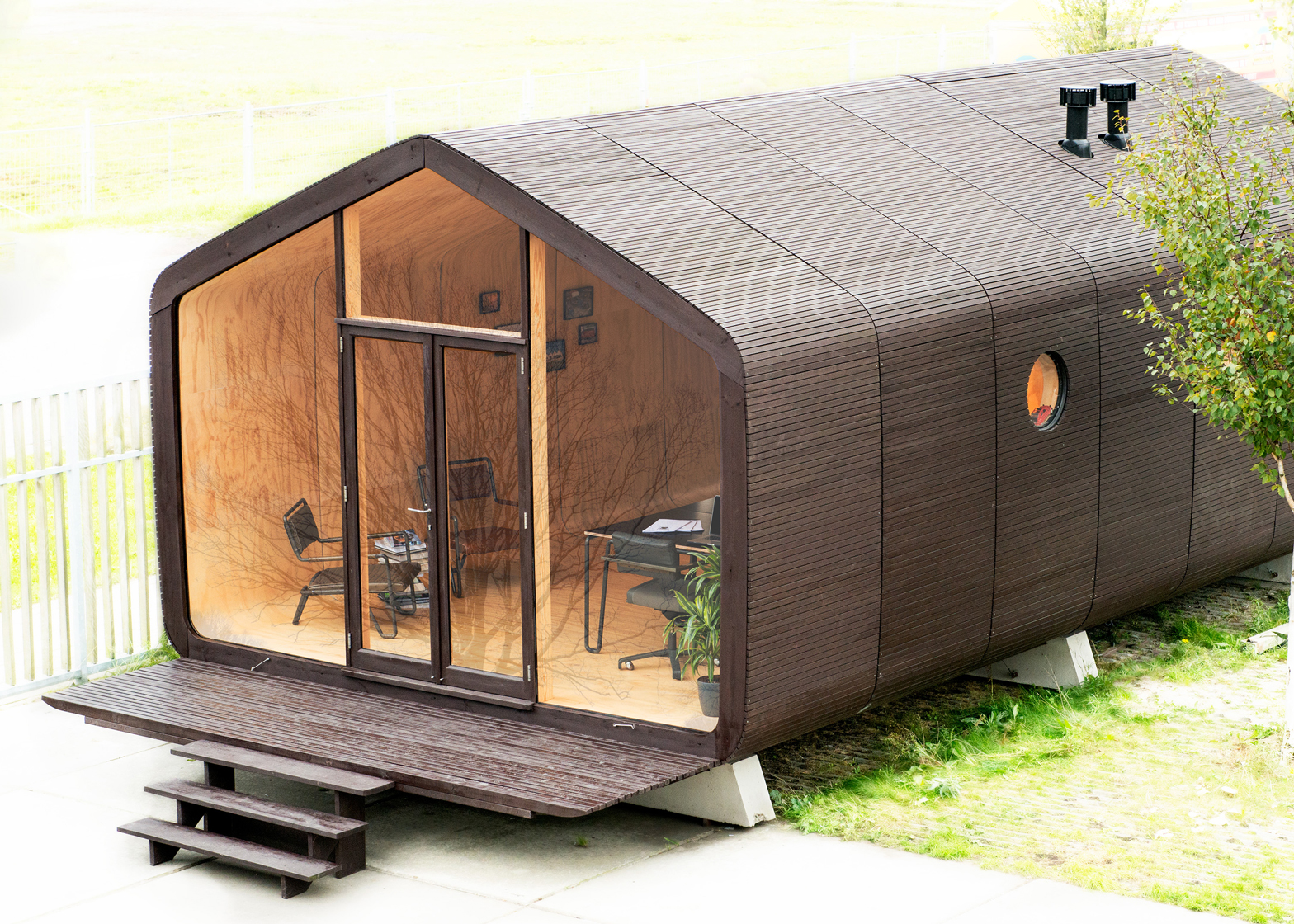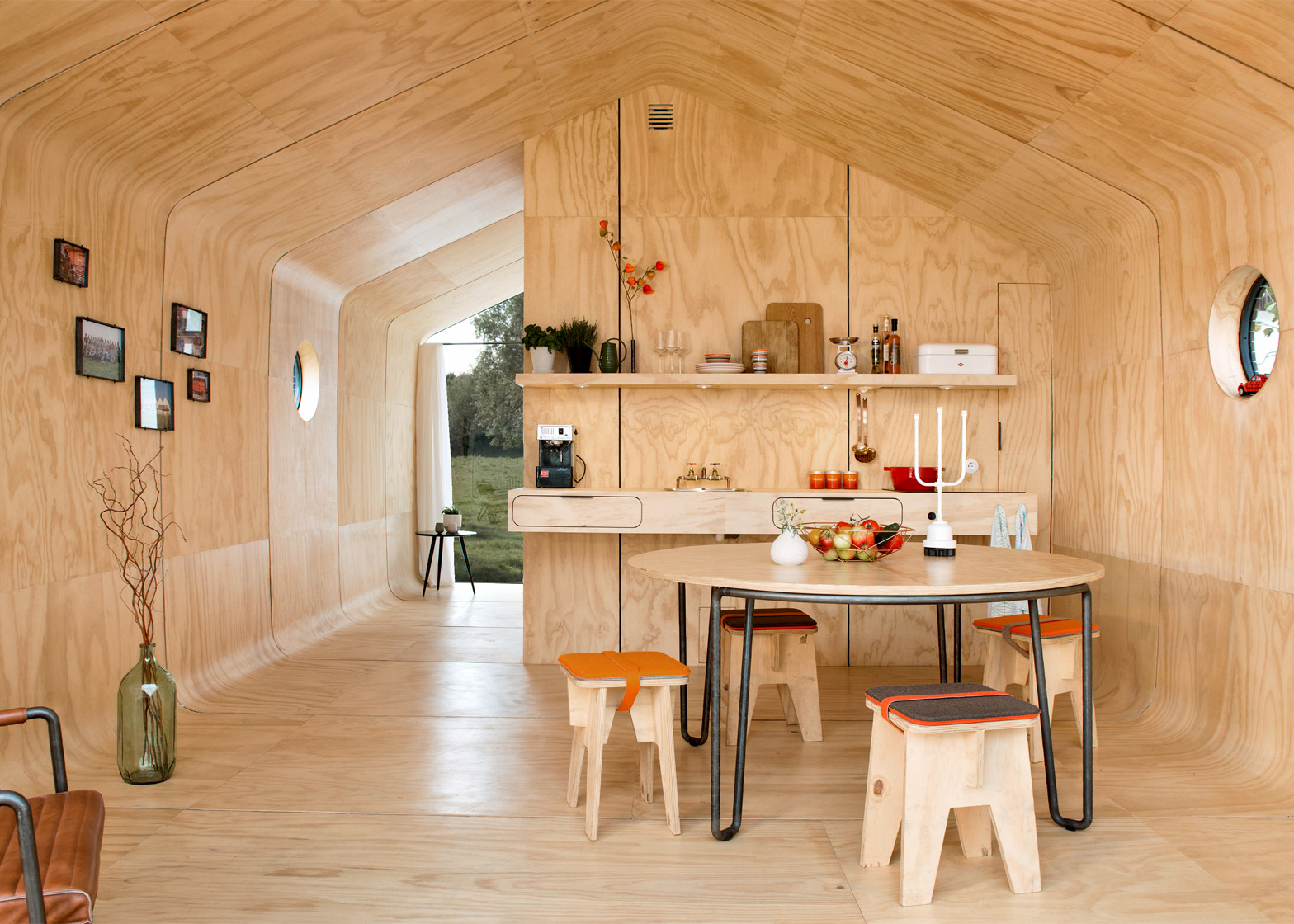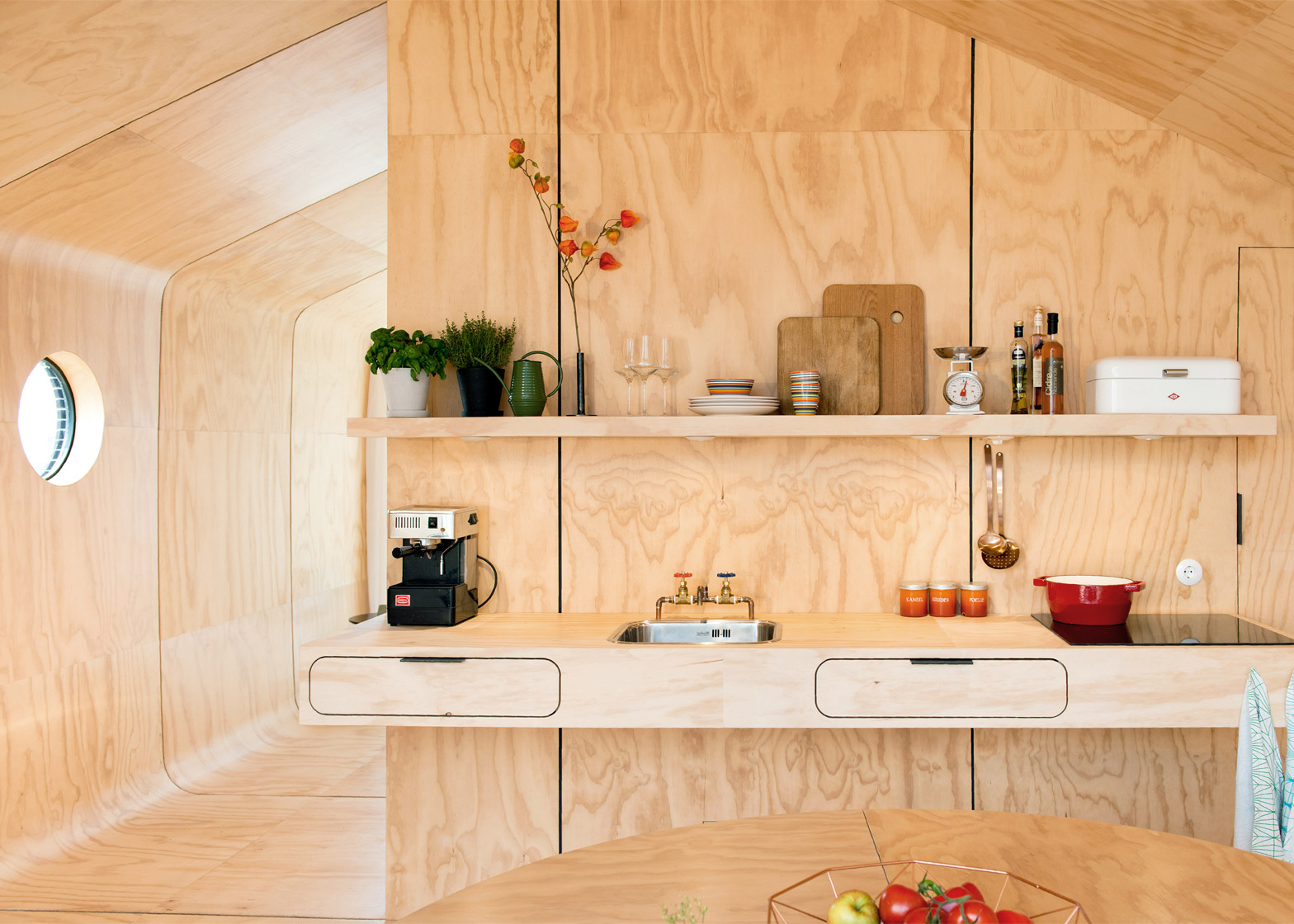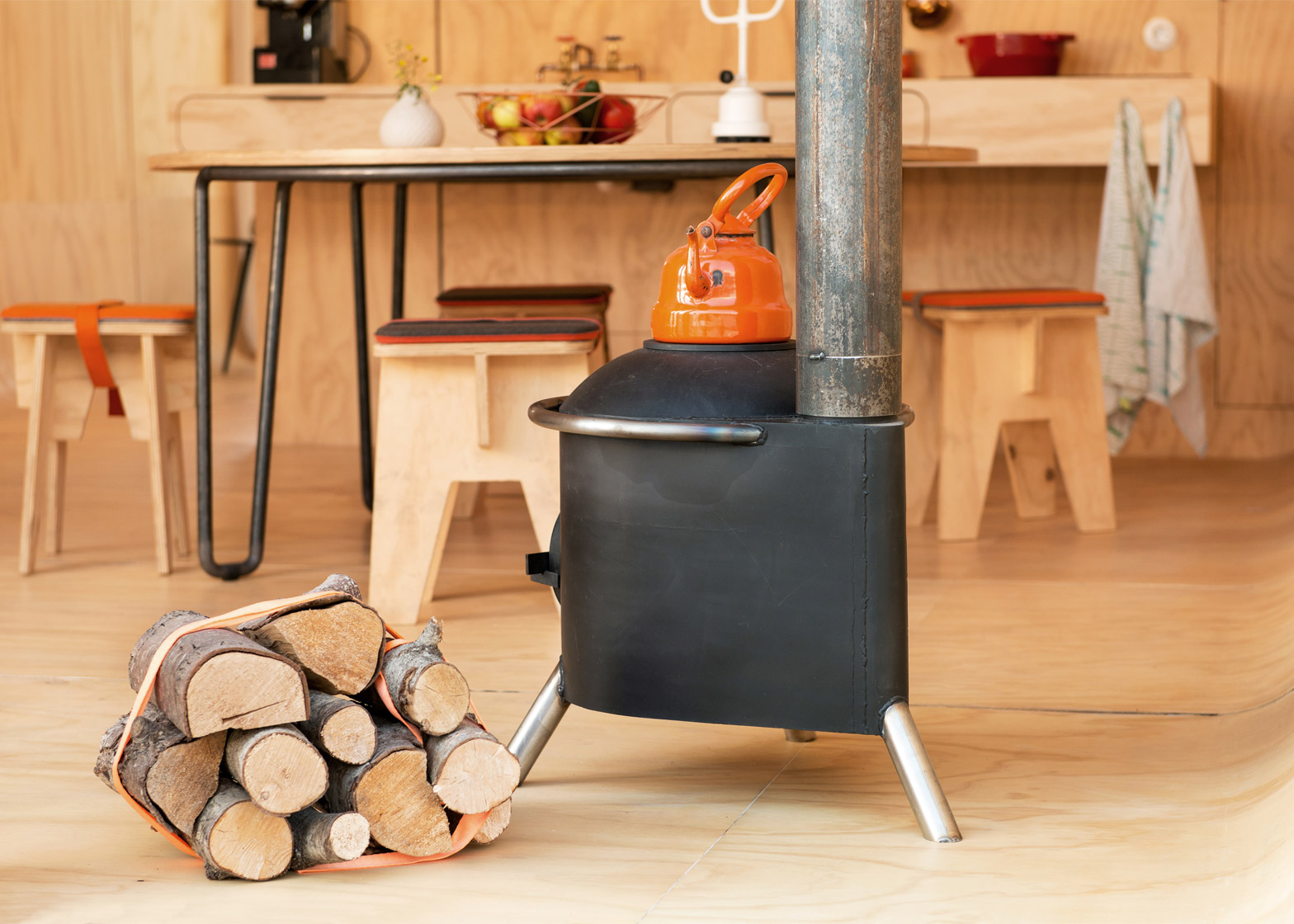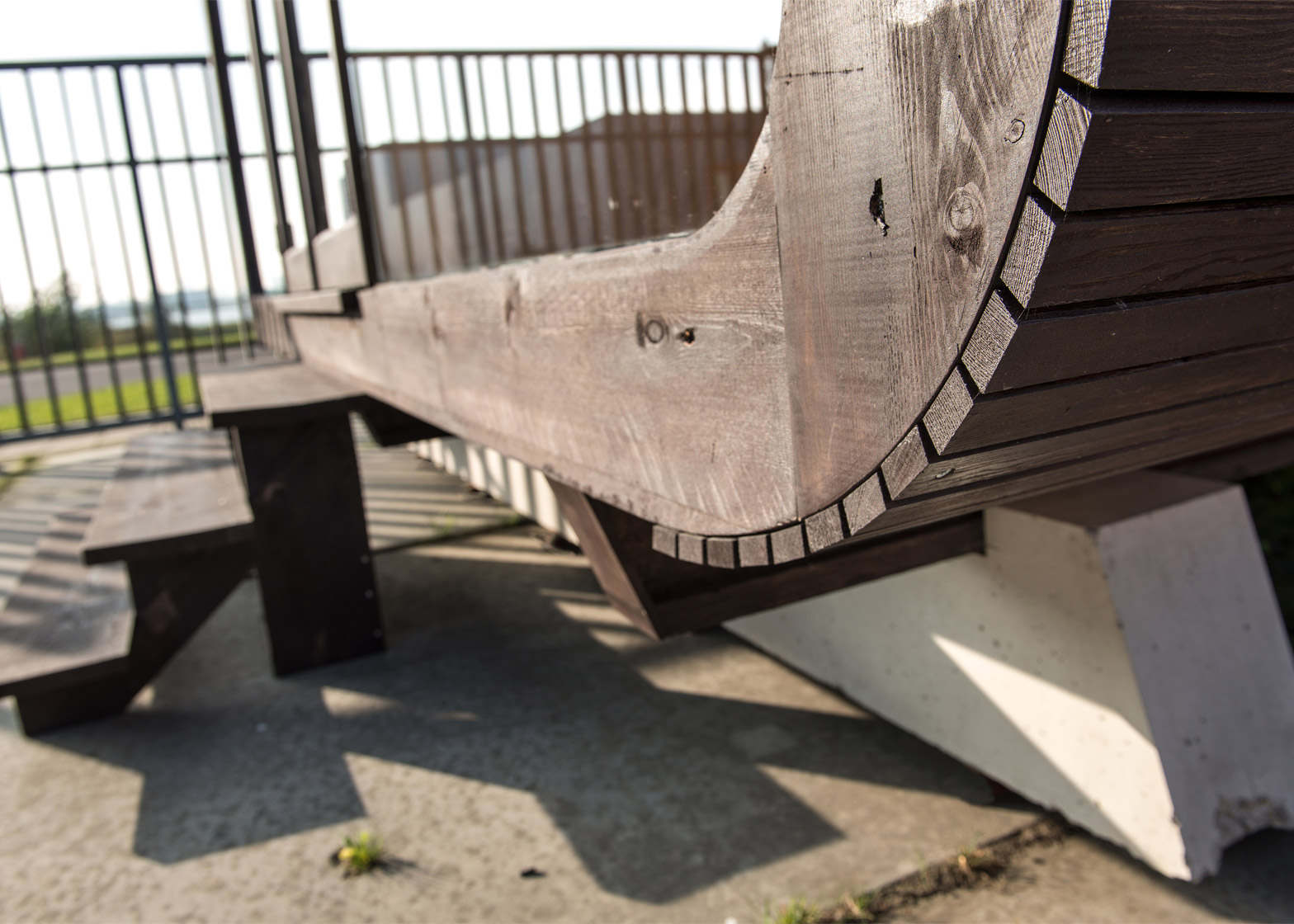Amsterdam collective Fiction Factory has developed a modular building system of cardboard components, which can be assembled in just one day to form houses or offices (+ slideshow).
Named Wikkelhouse, which translates from Dutch as Wrap House, the completed prototype comprises a series of interlocking cardboard segments that each weigh 500 kilograms.
Each of these tubular components is 1.2 metres deep, and can be connected and disconnected to extend or reduce the length of the building. They also make it easily transportable.
Each section is made from 24 layers of cardboard. These layers are wrapped around a house-shaped mould to achieve a rounded gabled form, before being bonded together with "eco-friendly" superglue to create a robust and insulating shell.
"Wikkelhouse is what you get when an everyday material finds a groundbreaking purpose," said Fiction Factory, a group of artists that has previously worked together to design interiors, fair booths and furniture.
"Using cardboard as its main building material, Wikkelhouse is a cutting-edge sustainable house with a beautiful design and exceptional constructive strength."
The cardboard is protected from weather by a waterproof but breathable film and finished with wooden cladding boards to create a weatherproof enclosure.
As the structure does not require a foundation, it can be built on a chosen site in just one day. Slot-in sections include a kitchen, shower and bathroom, and there are options for glazed or opaque facades.
The structure is made only from recyclable material and designed to last for at least 50 years.
"Wrap House meets the criteria for temporary or permanent housing," said the designers. "It is as much as three times more durable than traditional construction and has an expected life of at least 50 years."
"You can move the house to different locations if needed, or extend your floorspace by adding one or more segments."
Cardboard and heavy-duty paper continue to be popular with designers, particularly on projects that focus on cost or sustainability, but also for disaster relief. Examples range from a lamp by Berlin designer Johannes Kiessler to jewel-like vases from German design duo snug.studio and a hiking cabin by Pritzker Prize winning architect Shigeru Ban.
Recent cardboard projects include a fully functional car by Japanese manufacturer Lexus, a cathedral by Shigeru Ban and a bicycle that costs less than £10 to manufacture.
Like Dezeen on Facebook for the latest architecture, interior and design news »

